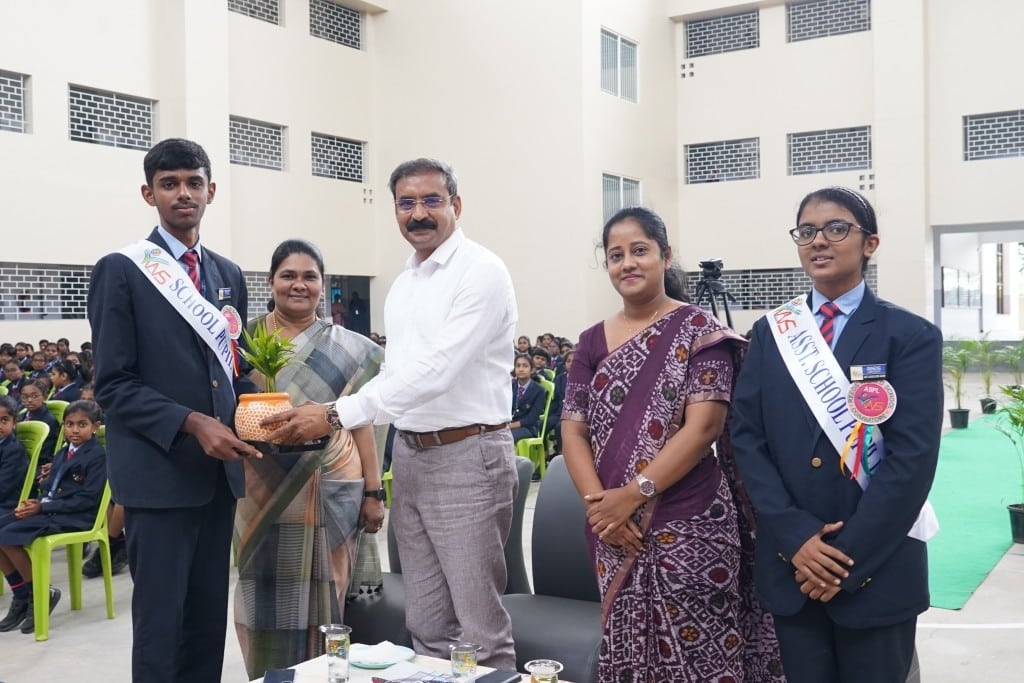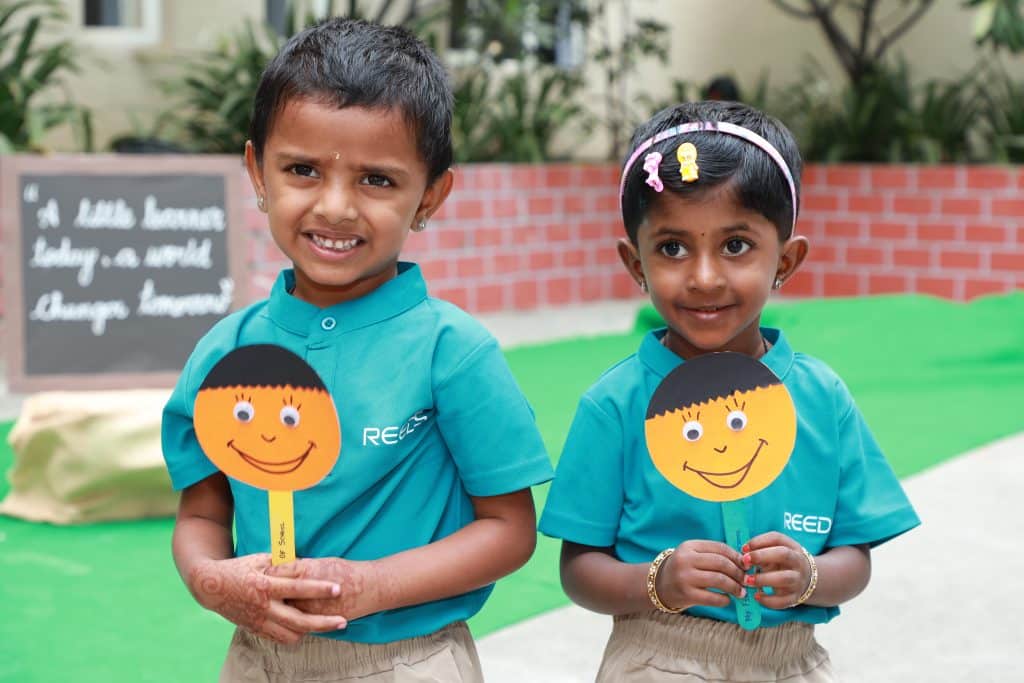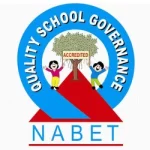21st Century Skills: How Modern CBSE Schools Prepare Students for Tomorrow’s Jobs

The job market your child will enter looks dramatically different from the one we knew just a decade ago. Artificial intelligence, automation, and digital transformation are reshaping industries at an unprecedented pace. As parents, you’re rightfully concerned about preparing your children for a future that’s both exciting and uncertain. The question isn’t just whether your child will get good grades, but whether they’ll develop the skills needed to thrive in tomorrow’s workplace.
Modern CBSE schools like Reeds World School are evolving beyond traditional academic models to integrate 21st-century skills that prepare students for careers that may not even exist today. This comprehensive approach ensures your child isn’t just academically excellent but also future-ready and adaptable to an ever-changing world.
Understanding 21st Century Skills: Beyond Academic Excellence
The concept of 21st-century skills encompasses a broad range of competencies that go far beyond traditional subject knowledge. These skills fall into three main categories:
Learning and Innovation Skills:
- Critical thinking and problem-solving
- Creativity and innovation
- Communication and collaboration
Digital Literacy Skills:
- Information and media literacy
- Technology literacy
- Digital citizenship
Life and Career Skills:
- Leadership and responsibility
- Adaptability and flexibility
- Initiative and self-direction
- Social and cross-cultural skills
These skills work together to create well-rounded individuals who can navigate complexity, think independently, and contribute meaningfully to society and the economy.
Why Traditional Education Alone Isn’t Enough
The industrial model of education, focused primarily on memorization and standardized testing, served its purpose for decades. However, today’s rapidly evolving job market demands different competencies. Consider these changes:
Jobs of the Future: According to the World Economic Forum, 50% of all employees will need reskilling by 2025. Many of the fastest-growing careers didn’t exist ten years ago – data scientists, social media managers, cybersecurity specialists, and AI engineers.
Skills Over Degrees: Employers increasingly value demonstrable skills over credentials alone. Companies like Google, Apple, and IBM have removed degree requirements for many positions, focusing instead on practical abilities and problem-solving skills.
Automation Impact: While automation will eliminate some jobs, it will create others that require uniquely human skills – creativity, emotional intelligence, complex problem-solving, and adaptability.
How Modern CBSE Schools Are Transforming Education
1. Integrated STEM and STEAM Learning
Modern CBSE schools are moving beyond isolated subject teaching to integrated STEM (Science, Technology, Engineering, Mathematics) and STEAM (adding Arts) approaches. At Reeds World School, students don’t just learn about physics principles – they apply them to build robots, design sustainable solutions, and create innovative projects.
Real-World Application: Students work on projects that mirror real workplace challenges. For example, a math lesson might involve analyzing climate data to propose environmental solutions, combining mathematical skills with environmental science and critical thinking.
Interdisciplinary Learning: Biology students might collaborate with computer science students to develop health monitoring apps, fostering both subject knowledge and teamwork skills.
2. Critical Thinking and Problem-Solving Development
Rather than providing ready-made answers, modern CBSE schools encourage students to ask questions, analyze information, and develop their own solutions.
Case-Based Learning: Students examine real-world scenarios and work through complex problems. This might involve analyzing business cases, historical events, or scientific phenomena to develop analytical skills.
Socratic Method: Teachers use questioning techniques that encourage students to think deeply about topics rather than simply memorizing facts.
Project-Based Learning: Students tackle long-term projects that require research, planning, execution, and reflection, mirroring the project management skills needed in most careers.
3. Digital Literacy and Technology Integration
Today’s students are digital natives, but being comfortable with technology isn’t the same as being digitally literate. Modern CBSE schools focus on developing sophisticated technology skills.
Coding and Programming: Students learn programming languages appropriate to their age, understanding not just how to use technology but how to create it.
Digital Citizenship: Students learn about online safety, digital ethics, information verification, and responsible technology use.
Data Analysis: Students learn to interpret and analyze data using various tools, preparing them for data-driven decision-making in their future careers.
Media Literacy: In an age of information overload, students learn to evaluate sources, identify bias, and distinguish between reliable and unreliable information.
4. Communication and Collaboration Skills
The ability to communicate effectively and work collaboratively is crucial in almost every career path.
Presentation Skills: Students regularly present their work to peers, teachers, and sometimes community members, developing confidence and communication abilities.
Collaborative Projects: Group work isn’t just about dividing tasks – students learn to leverage different strengths, resolve conflicts, and achieve common goals.
Multilingual Communication: Many modern CBSE schools emphasize multilingual abilities, preparing students for global communication.
Digital Communication: Students learn professional communication through various digital platforms, understanding appropriate tone and etiquette for different contexts.
5. Creativity and Innovation
Creativity isn’t limited to arts education – it’s a crucial skill for problem-solving in any field.
Design Thinking: Students learn structured approaches to innovation, from identifying problems to prototyping solutions.
Artistic Expression: Through various art forms, students learn to express ideas creatively and think outside conventional boundaries.
Innovation Projects: Students are encouraged to identify problems in their communities and develop innovative solutions, fostering entrepreneurial thinking.
The CBSE Advantage in 21st Century Skills Development
The CBSE curriculum framework provides an excellent foundation for 21st-century skills development:
Flexibility and Adaptability
CBSE’s continuous curriculum updates ensure alignment with contemporary needs. The recent emphasis on experiential learning, critical thinking, and skill-based assessment supports 21st-century skill development.
Holistic Development
CBSE’s focus on co-curricular activities, sports, and life skills complements academic learning, creating well-rounded individuals prepared for diverse challenges.
National and Global Relevance
CBSE’s recognition across India and internationally provides students with opportunities while ensuring they’re prepared for global competitiveness.
Technology Integration
CBSE’s embrace of digital learning platforms and technology-enhanced education prepares students for digital workplaces.
Practical Examples: 21st Century Skills in Action

Project-Based Learning Example
A Grade 8 science project might involve students identifying a local environmental issue, researching solutions, designing an intervention, and presenting their findings to community leaders. This single project develops:
- Critical thinking (analyzing the problem)
- Research skills (gathering information)
- Creativity (designing solutions)
- Communication (presenting findings)
- Collaboration (working in teams)
- Digital literacy (using research tools and presentation software)
Cross-Curricular Integration
A history lesson about ancient civilizations might involve:
- Creating digital presentations (technology skills)
- Analyzing primary sources (critical thinking)
- Designing period-appropriate artifacts (creativity)
- Presenting to younger students (communication and leadership)
- Collaborating with geography students on mapping projects (teamwork)
Real-World Problem Solving
Students might partner with local businesses to solve actual challenges, such as:
- Developing marketing strategies for small businesses
- Creating apps to address community needs
- Designing sustainable solutions for local environmental issues
- Organizing community service projects
How Parents Can Support 21st Century Skills Development
Encourage Curiosity
Ask open-ended questions about your child’s learning. Instead of “What did you learn today?” try “What interesting questions came up in class today?” or “What problem are you trying to solve in your project?”
Embrace Technology Thoughtfully
Support your child’s technology use for learning while maintaining healthy boundaries. Encourage them to create content, not just consume it.
Value Process Over Product
Celebrate your child’s problem-solving process, creative thinking, and collaboration skills, not just final grades or achievements.
Model Lifelong Learning
Show your child that learning doesn’t stop after school. Share your own learning experiences and demonstrate adaptability in your own career.
Connect Learning to Real Life
Help your child see connections between school learning and real-world applications. Discuss how different careers use various skills and knowledge.
The Future Job Market: What to Expect
Understanding tomorrow’s job market helps us prepare students appropriately:
Growing Career Fields
Technology and Data: Artificial intelligence specialists, data scientists, cybersecurity experts, and software developers will continue to be in high demand.
Healthcare and Biotechnology: Genetic counselors, biomedical engineers, and healthcare technology specialists represent growing opportunities.
Environmental and Sustainability: Climate change analysts, renewable energy engineers, and sustainability consultants will be increasingly important.
Creative and Design: User experience designers, content creators, and creative directors will be valuable as automation handles routine tasks.
Human-Centered Services: Counselors, coaches, and community organizers will remain important as society values human connection.
Skills in Demand
Regardless of specific career paths, certain skills will remain valuable:
1.Emotional Intelligence: Understanding and managing emotions, both personal and interpersonal
2. Adaptability: Ability to learn new skills and adjust to changing circumstances
3. Critical Thinking: Analyzing information and making reasoned decisions
4. Creativity: Generating innovative solutions and ideas
5. Communication: Clearly expressing ideas across various mediums and audiences
6. Digital Fluency: Comfortable with technology and able to learn new digital tools quickly
Measuring Success: Beyond Test Scores
Modern CBSE schools are developing new ways to assess 21st-century skills:
Portfolio-Based Assessment
Students maintain portfolios showcasing their growth in various skills over time, including projects, reflections, and peer feedback.
Competency-Based Evaluation
Assessment focuses on demonstrated abilities rather than just test performance, measuring skills like collaboration, creativity, and problem-solving.
Real-World Application
Students demonstrate learning through practical applications, such as community projects, internships, or entrepreneurial ventures.
Peer and Self-Assessment
Students learn to evaluate their own work and provide constructive feedback to peers, developing metacognitive skills.
Choosing the Right School: Questions to Ask
1.When evaluating schools for your child, consider these questions:
2. How does the school integrate technology into daily learning?
3. What opportunities exist for collaborative projects and group work?
4. How does the school encourage creativity and innovation?
5. What real-world connections does the curriculum include?
6. How are students prepared for digital citizenship and online safety?
7. What opportunities exist for leadership and initiative-taking?
8. How does the school assess 21st-century skills?
9. What support exists for students to explore emerging fields and technologies?
The Reeds World School Difference
At Reeds World School, we understand that preparing students for the future requires more than excellent academic instruction. Our approach includes:
- Integrated Learning: Subjects are connected to real-world applications and student interests
- Technology Integration: Students use technology as a tool for learning, creating, and problem-solving
- Project-Based Learning: Students work on meaningful projects that develop multiple skills simultaneously
- Global Perspective: Students learn about and interact with global communities and challenges
- Innovation Labs: Dedicated spaces for experimentation, creativity, and hands-on learning
- Industry Partnerships: Connections with local businesses and organizations provide real-world learning opportunities
- Continuous Assessment: Ongoing evaluation of both academic progress and skill development
Conclusion: Preparing for an Uncertain but Exciting Future
The future may be uncertain, but it’s also full of exciting possibilities. Students who develop 21st-century skills alongside strong academic foundations will be prepared to create that future rather than just adapt to it. They’ll be the innovators, problem-solvers, and leaders who tackle challenges we can’t yet imagine.
As parents, your choice of school plays a crucial role in your child’s preparation for this future. Modern CBSE schools that prioritize 21st-century skills development offer the best of both worlds: rigorous academic preparation and the flexible, creative, and collaborative skills needed for future success.
The investment in your child’s 21st-century skills development isn’t just about career preparation – it’s about raising confident, capable, and adaptable individuals who can contribute positively to society and find fulfillment in whatever path they choose.
The future belongs to those who can think critically, create boldly, collaborate effectively, and adapt continuously. By choosing a school that prioritizes these skills alongside academic excellence, you’re giving your child the tools they need not just to succeed in tomorrow’s world, but to help shape it.
At Reeds World School, we’re committed to preparing students for the future through innovative CBSE education that integrates 21st-century skills development. To learn more about our programs and how we’re preparing students for tomorrow’s opportunities, contact us for a consultation or campus visit. https://reedsws.com/virtualtour/



